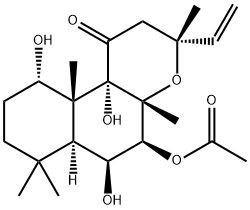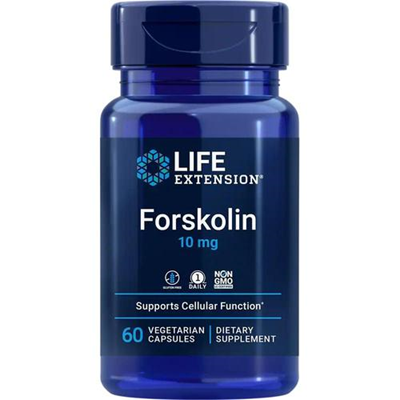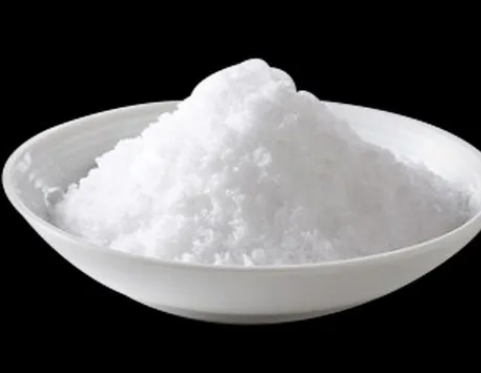Forskolin: Natural Origin, Mechanism of Action and Safety
Forskolin (7beta-acetoxy-8, 13-epoxy-1a, 6β, 9a-trihydroxy-labd-14-en-11-one) is a diterpenoid isolated from plant Coleus forskohlii (Lamiaceae). It is a lipid-soluble compound that can penetrate cell membranes and stimulates the enzyme adenylate cyclase which, in turn, stimulates ciliary epithelium to activate cyclic adenosine monophosphate, which decreases intraocular pressure (IOP) by reducing aqueous humor inflow. 1
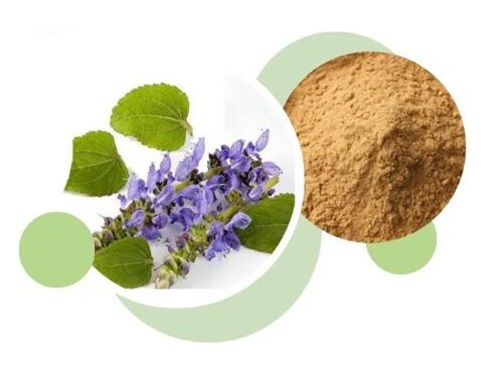
Uses
Forskolin is used for the treatment of eczema, asthma, psoriasis, cardiovascular disorders and hypertension, where decreased intracellular cAMP level is believed to be a major factor in the development of the disease process.
Natural origin
Forskolin is a significant bioactive compound extracted from the roots of Coleus forskohlii, a plant belonging to the Lamiaceae or Labiatae family. It stands out among various compounds found in C. forskohlii for its health-related benefits and has been the subject of clinical interest since its discovery by Western scientists in 1974. Initially known as coleonol, the name was later changed to forskolin as further research identified additional related compounds.
Forskolin is a labdane diterpene characterized by its chemical structure (7beta-Acetoxy-8, 13-epoxy-1a, 6b, 9a-trihydroxy-labd-14-en-11-one) and has a molecular weight of 410.5 g/mole. This compound appears as an off-white crystalline solid, soluble in organic solvents like DMSO, Ethanol, Methanol, and Dichloromethane and can be dissolved in water with ethanol. The plant from which forskolin is derived grows in various regions across India, including the Himalayas, Deccan Plateau, Eastern Ghats, and parts of the Western Ghats. It is known by several names in different Indian languages, reflecting its widespread recognition and use. Forskolin's extraction from only the root part of C. forskohlii underscores the specific localization of its pharmacologically active constituents.
Mechanism of action
Forskolin's mechanism of action is primarily through the upregulation of cyclic adenosine monophosphate (cAMP) levels and the enhancement of cAMP-mediated functions. This is achieved by directly activating adenylate cyclase, an enzyme crucial for the conversion of ATP to cAMP. Forskolin's interaction with adenylate cyclase does not involve cell surface receptors but requires the presence of a guanine nucleotide-binding protein, G8, for optimal enzyme stimulation. It binds with high affinity to sites in rat brain and human platelet membranes, suggesting these sites are part of an activated adenylate cyclase complex. By increasing cAMP, forskolin regulates enzymes essential for cellular energy processes, including fluid movement out of the eye, thereby reducing intraocular pressure (IOP) and offering a novel approach to glaucoma treatment distinct from other drugs.
Safety
Forskolin is generally considered safe with an excellent safety profile when used at recommended dosages, exhibiting minimal toxicity or side effects.
References:
[1] V D WAGH. Forskolin: upcoming antiglaucoma molecule.[J]. Journal of Postgraduate Medicine, 2012, 58 3. DOI:10.4103/0022-3859.101396.You may like
Related articles And Qustion
See also
Lastest Price from Forskolin manufacturers

US $0.00/kg2025-04-29
- CAS:
- 66575-29-9
- Min. Order:
- 1kg
- Purity:
- 0.99
- Supply Ability:
- 1000kg
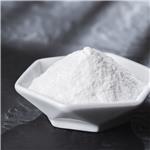
US $6.00/kg2025-04-21
- CAS:
- 66575-29-9
- Min. Order:
- 1kg
- Purity:
- 0.99
- Supply Ability:
- 10000
